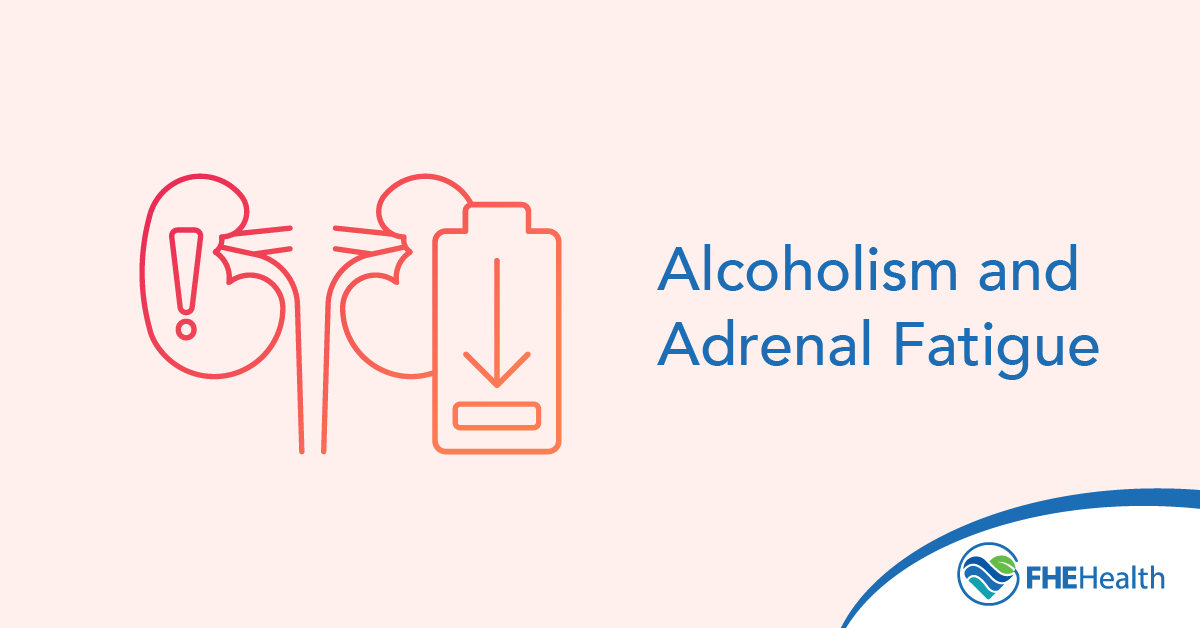
Did you know that a strong relationship exists between alcohol and cortisol? While having a drink may seem like a quick way to unwind, chronic alcohol use can disrupt the body’s delicate hormonal balance — especially when it comes to the adrenal glands.
These small but powerful glands play a vital role in managing stress through the release of hormones such as cortisol. Over time, excessive drinking can strain the adrenal system, leading to a condition called adrenal fatigue. In this article, we explore how alcohol affects cortisol production, what that means for adrenal health and the potential impact of long-term use.
What Is Adrenal Fatigue?
The adrenal glands, located above the kidneys, produce vital hormones, including cortisol, adrenaline and aldosterone. These hormones perform a wide range of functions, from regulating metabolism to managing blood pressure.
When the body is under chronic stress — whether from overwork, illness, poor diet or substance use — the adrenal glands may struggle to keep up with the demand for stress hormones. This can cause the adrenal glands to function below optimal levels, which is sometimes known as adrenal fatigue. Common symptoms of adrenal fatigue include:
- Persistent fatigue not relieved by sleep
- Brain fog or difficulty concentrating
- Mood swings or irritability
- Cravings for salty or sugary foods
- Sleep disturbances
- Low blood pressure or lightheadedness
Understanding adrenal function — and how it interacts with substances such as alcohol — is key to addressing the root causes of fatigue and burnout.
The Connection Between Adrenal Glands and Alcohol
Now that you know what the adrenal glands do, let’s explore their relationship to alcohol. One of the key ways alcohol affects the adrenal system is through its influence on cortisol, the body’s primary stress hormone. While alcohol may initially cause a temporary drop in stress, it ultimately increases cortisol levels in the bloodstream (especially with chronic use). This creates a cycle where alcohol contributes to heightened stress and anxiety, prompting some people to drink more to feel better.
Heavy or long-term drinking can also impair the brain’s communication with the adrenal glands, throwing off normal hormone rhythms. This may lead to dysregulated cortisol production, adrenal overstimulation and eventual burnout of the adrenal system.
Because alcohol use and adrenal dysfunction affect many of the same systems in the body, their symptoms often overlap. For example, alcohol use can also cause fatigue and brain fog, as well as irritability, sleep issues and low blood pressure. By recognizing the connection between alcohol and cortisol, individuals can better identify the root causes of their symptoms and explore more targeted treatment or lifestyle changes.
Supporting Adrenal Health During and After Recovery
In the United States alone, over 28 million adults struggle with alcohol use disorder, putting them at risk of adrenal fatigue. The good news is that with sustained abstinence and proper support, the adrenal system can begin to rebalance over time. Although severe or long-term alcohol use may cause lasting hormonal imbalances in some individuals, many people see improvements in cortisol regulation, energy levels and overall stress response during recovery.
Here are a few practical strategies for supporting adrenal health:
- Prioritize rest and sleep. Quality sleep is essential for adrenal repair. Aim for consistent sleep and wake times, and avoid screens before bed.
- Eat a balanced diet. Nutrient-dense foods rich in healthy fats, protein and complex carbs support hormone production. Limit unhealthy substances, such as sugar, caffeine and processed foods.
- Manage stress mindfully. Practice stress-reduction techniques, such as deep breathing, meditation or gentle movement such as yoga or walking.
- Stay hydrated. Alcohol depletes hydration and electrolytes. Replenish with water, herbal teas and mineral-rich foods.
- Work with a health care provider. Functional medicine or holistic practitioners can run hormone panels and recommend supplements (such as vitamin C, B vitamins or adaptogens) tailored to your needs.
Frequently Asked Questions About Alcohol and Cortisol
Curious to learn more about the relationship between alcohol and cortisol? Here are some frequently asked questions.
When to Seek Medical Advice for Related Concerns
Are you worried about your own or a loved one’s alcohol use? It’s important to intervene early, especially if any concerning physical symptoms are present, such as persistent fatigue, mood changes and sleep disturbances. These signs can signal adrenal dysfunction, alcohol-related issues or other underlying conditions that require professional evaluation.
Get Help Today
While treating these conditions is easier said than done, you don’t have to navigate the process alone. At FHE Health, we offer an experienced, supportive team that’s dedicated to your needs. Along with a thorough diagnosis procedure, we provide treatment plans personalized to your unique condition and health. Contact us today to learn more about how we can help you.






